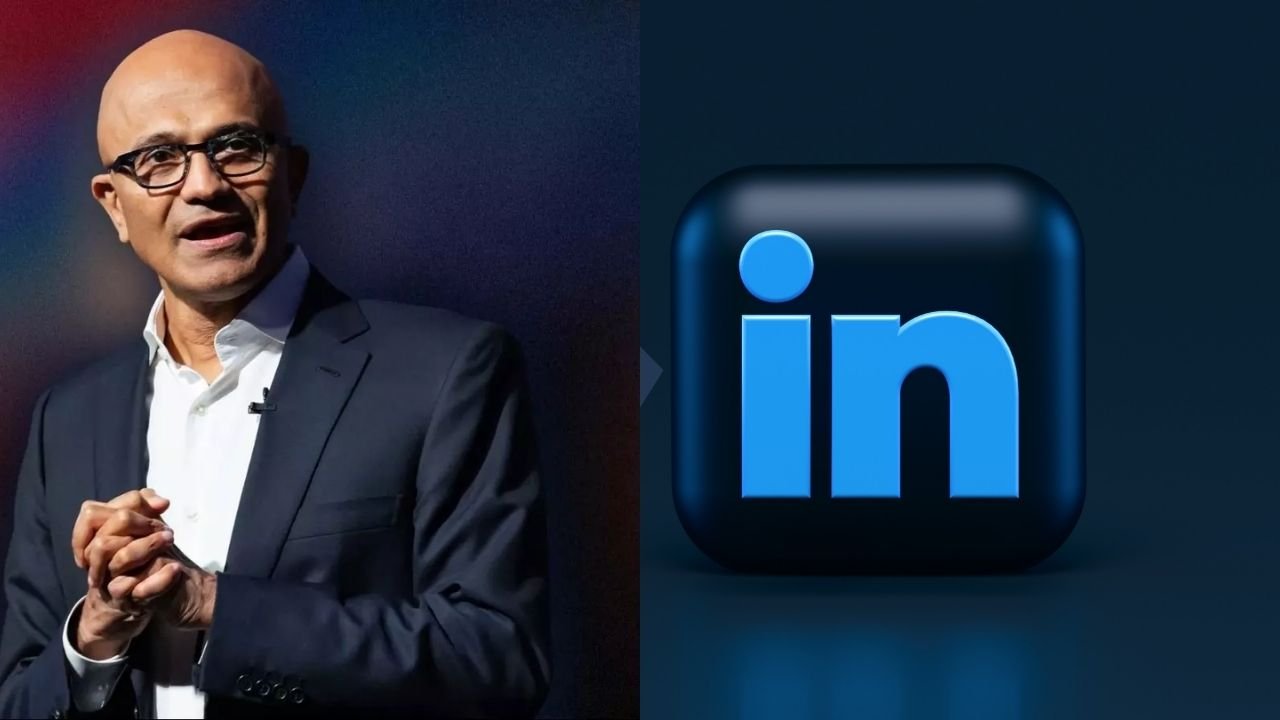MCA slams fine on LinkedIn, Satya Nadella, and 8 others for violating provisions of the Companies Act, 2013

Table of Contents
Background
The Indian Ministry of Corporate Affairs (MCA) has imposed fine of worth ₹27,10,800 on LinkedIn India, a subsidiary of Microsoft, Satya Nadella, Ryan Roslansky and seven other individuals for failing to identify and disclose its significant beneficial owners (SBOs) as mandated by the Companies Act, 2013, according to an order by the Registrar of Companies (RoC). This act requires companies to be transparent about who ultimately controls them.
LinkedIn India was fined Rs 7 lakh, while Nadella and Roslansky are both imposed with a Rs 2 lakh fine. The other fined individuals include Keith Ranger Dolliver, Benjamin Owen Orndorff, Michelle Katty Leung, Lisa Emiko Sato, Ashutosh Gupta, Mark Leonard Nadres Legaspi, and Henry Chining Fong.
Satya Nadella is the chief of Microsoft, who acquired LinkedIn in December 2016, and Ryan Roslansky is the global CEO of LinkedIn, appointed on June 1, 2020. The order stated that they both are SBOs. of LinkedIn India and they failed to report this status as required by section 90(1) of the Company Act, resulting in penalties under section 90(10).
Contentions of LinkedIn
The company argued that since Nadella and Roslansky’s control stems from their positions within Microsoft, their influence over LinkedIn India could be severed if their employment were to be terminated. They just merely serve professional services at the discretion of their respective boards. If they got terminated, they no longer hold any beneficial interest in the company. This, they claimed, disqualified them from being considered SBOs under Section 90.
MCA’s Arguments
MCA rejected the company’s argument. Section 90 of the Companies Act, 2013 goes beyond just directorship or employment to encompass a broader definition of control. As per the MCA’s interpretation, SBOs can be identified based on their ability to exert significant influence or control, even indirectly. Basically, individuals having beneficial interest in a company are identified as SBOs. In this case, whoever has control over Microsoft, which in turn owns LinkedIn India, would be considered the beneficial owner under Section 90.
Order of Registrar of Companies
Firstly, the RoC pointed out that LinkedIn India failed to send a mandatory notice as required by the Companies (Significant Beneficial Owners) Rules. This rule mandates companies to identify and report their SBOs. The RoC found evidence on LinkedIn’s own website that CEO Ryan Roslansky reports to Satya Nadella, indicating a clear hierarchy within Microsoft, which owns LinkedIn India. Based on this, the RoC concluded that both Nadella and Roslansky should have been identified as SBOs under Section 90 of the Companies Act.
Secondly, the RoC clarified the definition of control under Section 90. The order dispels any notion that SBOs must be directly involved in day-to-day operations. The law recognizes that indirect control or significant influence also qualifies as beneficial ownership. In this case, whoever controls Microsoft, the parent company, would be considered the SBO of LinkedIn India by virtue of ownership structure.
Conclusion
The hefty penalty imposed by the RoC highlights the seriousness of these violations. The order also reflects the potential liability of all company officers, including non-executive directors, due to their presumed knowledge of the company’s ownership structure. However, in this case, all parties have the right to appeal the decision to Regional Director within 60 days. It remains to be seen whether this case will set a precedent for how SBOs are identified in India, particularly in the context of multinational corporations with complex ownership structures.
Visit Lawgical Adda for more such legal updates!



